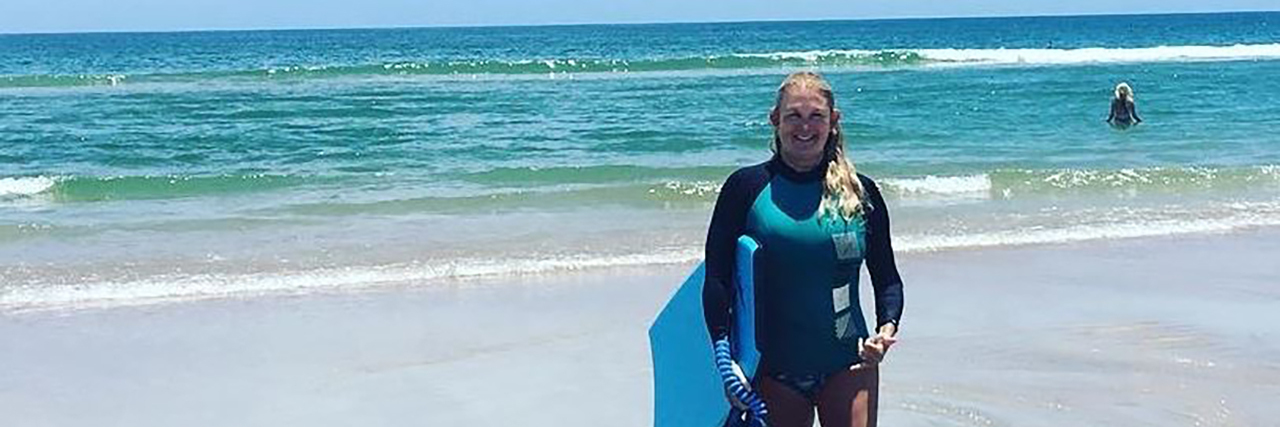My name is Kimberly Sanders and I live in Daytona Beach, Florida. I am a 51-year-old high school English teacher with a disability. At only 18 years of age, I became involved in a near-fatal car accident. The aftermath culminated in over four years of dealing with infection, traction, countless operations, hospitalizations and body casts. I recovered, but as a result, I walk with a limp. My right hip is fused, I have a leg length discrepancy, and an artificial knee all on the same side of my body.
Up until recently, I didn’t really consider myself to be disabled. Over the past 25 years, I was able to enjoy the opportunity of a full, productive life. I learned how to bodyboard, got married, had a bicycle modified so I could ride with my husband, taught high school and traveled each summer.
Unfortunately last year, on November 28th at 7:00 in the morning, a car rounded the corner in the parking lot while I was walking to my classroom, struck me, ran over my leg and shattered my right ankle. One external fixator, one cast, one boot and two plates with 18 screws later, I am not quite the person I used to be. Since I also spent four months non-weight bearing and six months out of work, it is taking me awhile to recover. I recently returned to work and am still experiencing pain and difficulty walking.
I firmly believe this topic is relevant because every person deserves the right to go out in public and feel comfortable in their own skin. Every person deserves the right to their own personal space, privacy and quality of life. Every person deserves the right to be respected. Period.
Let me preface this list by saying that there are so many lovely people in the world and I’ve been blessed with the most amazing husband, fabulous friends and family and an incredible boss. This list is for those few people who might need a little reminder about how to act around others who may not look, or walk like they do.
1. “Are you OK?”
If I am laughing and talking with my friends and family and not lying on the ground screaming in pain or bleeding, I am OK.
2. “What can I do to help you?”
Unless I’ve asked for help, mind your own business. See above.
3. Persistently stare.
I can see you! I may walk with a limp, but but my eyes work fine. This is just plain rude.
4. Whisper loudly to your friend about me.
I can hear you too.
5. “What did you to yourself?”
Um, nothing? Someone ran me over with their car. This question implies blame, as if somehow it were my fault that I got hurt. Not cool at all.
6. Mention my scars to me as if I didn’t know they were already there.
One time while out, a friend of a friend who already knew what happened to me said, “I was just noticing all of your scars.” I replied, “Please don’t, I’m just trying to relax.” Her response? “You people usually want to be recognized.” Say what?
7. Cut in front of me in the deli line at Publix because you walk faster than I do.
Nobody gets between me and my pub sub.
8. Assume that I’m weak because I walk differently.
I have more strength and courage than you know. I’ve thwarted death, overcome infection, endured pain, suffered extreme loss and still manage to thrive and celebrate life every day.
Please be mindful of other people out in public and try to show kindness to strangers. Sometimes the best thing to say or do might be nothing at all.

